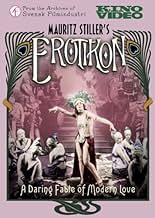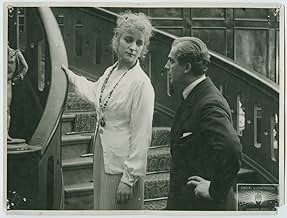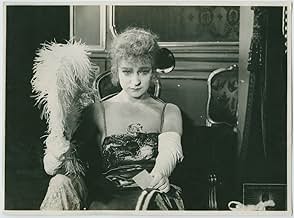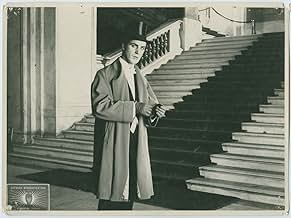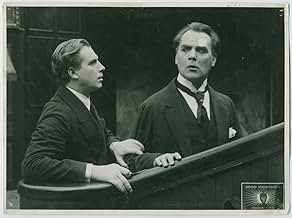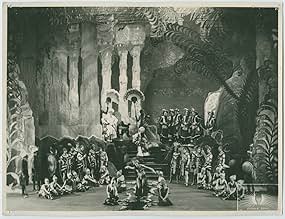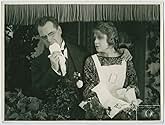A professor has a bit of an infatuation with his niece; the professor's wife, a cosmopolitan lady of leisure, takes up with a flashy aviator, mainly, it seems, to torment a sculptor who loves her; turn up the heat, stir, and wait for the boil...
The DVD release's jacket does a mild disservice to Mauritz Stiller's Erotikon (1920) by stating that its slyly sardonic approach to sexual intrigue inspired Ernst Lubitsch. As the only Lubitsch film I've seen that predates Erotikon is the preposterous and galumphing Eyes of the Mummy, I'm prepared to accept that Lubitsch had a significant epiphany that helped him become the sort of filmmaker who could make The Marriage Circle. But the expectation is thus set that Erotikon will have an effervescent comic pace and a constantly winking eye like a Lubitsch film of the 30s-- and that is not the case.
A better touchstone for the film is The Rules of the Game (not least because an aviator plays so prominent a role), a movie which observes, with the sad empathy of a veteran priest with many Saturdays spent listening to confession behind him, the desperate efforts of a group of humans to chase after happiness-- only to make things worse in most cases. Erotikon begins with a fussy middle-aged professor lecturing on bigamous beetles (oddly anticipating the recent movie biography of Dr. Kinsey), and takes a consciously scientific detachment toward its characters as they scurry about, trying to keep mortality at bay by finding some form of erotic excitement in lives which are a bit too settled, under-occupied and, it appears, sexually frustrated. A comedy, yes, and even one that wraps up in high spirits, and yet a comedy that's touched throughout by melancholy, and played with a sort of gravity and a deliberate pace that gives us time to feel the hurt under the surface.
Or so it seemed to me when I watched it tonight. Then I watched the "intro" by the film scholar Peter Cowie, and learned that Erotikon is quite the opposite. Unlike Smiles of a Summer Night, another obvious comparison, Erotikon's comedy does not have a moralistic melancholy undertone, says Cowie. What struck me as gravity, like Preston Sturges slowed down to Douglas Sirk if not Carl Dreyer, strikes Cowie as "frothy."
How to account for the fact that Cowie sees a completely different Erotikon than I do? Well, for one thing, I suppose he has far more experience of Scandinavian cinema on which to build his preconceptions; next to a diet of Sjostrom, Bergman, Strindberg and Hamsun, Erotikon IS frothy, I'm sure. And I doubt he had seen it, the first few times at least, with the particular score on this DVD, a Celtic dirge that seems to belong to a production of "The Death of Cuchulain" more than it does to a 1920s drawing room comedy; it certainly puts the film in a dourer key than a conventional romantic comedy score would have. Maybe I'll try watching it again with something peppier, and see if it's a different movie.
Adding to the uncertainty of tone is the fact that the film contains a wide variety of acting styles. Tora Teje (as the socialite wife) and Lars Hanson (as the sculptor) are highly effective in a theatrical, heightened-naturalism sort of way, while Anders de Wahl as the husband and especially Torsten Hammaren as an aged professor who seems to be the Swedish answer to Mr. Muckle in It's a Gift are caricatures of woolly-headed academia. It's a bit like Deborah Kerr in Bonjour Tristesse being married to Fred MacMurray in The Absent-Minded Professor.
Despite this mismatch-- perhaps to be expected in such a trailblazing comedy with no apparent models to follow, other than its stage original-- Erotikon is a striking and interesting film, one of the few silents that seems to leap out of the period, untouched by the customary moralizing Victorian preconceptions of what is proper behavior for its characters (and proper punishment for those who violate it). Erotikon simply observes what these creatures do naturally; applying morals to them would be self-delusion, and Erotikon is a movie largely free of illusions.

